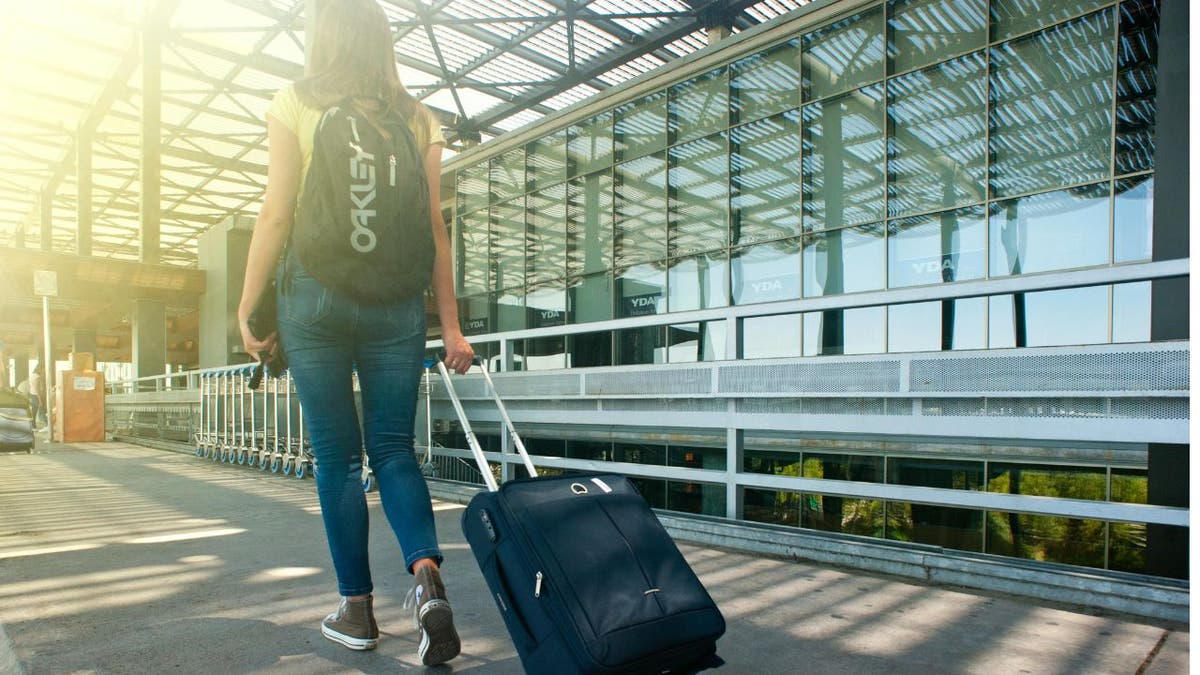As the July 4th holiday and summer travel heats up, cybercriminals are increasingly targeting unsuspecting travelers through online booking scams.
A new study by online protection company McAfee has identified the top five destinations most frequently targeted by cybercriminals for online booking scams.
Abhishek Karnik, head of threat research at McAfee, has shared valuable insights on those top destinations exploited by scammers and how to protect yourself from falling victim to these schemes.GET SECURITY ALERTS, EXPERT TIPS – SIGN UP FOR KURT’S NEWSLETTER – THE CYBERGUY REPORT HERE

A person kicking back on a hammock (Kurt “CyberGuy” Knutsson)
Top 5 online booking scam hot spots
It’s hard to immediately see why these destinations made this threat list. According to McAfee’s research, the following destinations are most frequently exploited by scammers:1. Fort Myers Beach, Florida
2. Sandusky, Ohio3. Pocono Manor, Pennsylvania
4. Waimea, Hawaii
5. Chicago
WHAT IS ARTIFICIAL INTELLIGENCE (AI)?

A woman pulling her luggage while on vacation (Kurt “CyberGuy” Knutsson)
BEST ANTIVIRUS FOR MAC, PC, IPHONES AND ANDROIDS – CYBERGUY PICKS
Why these destinations?
Karnik explains that popular vacation spots like Fort Myers Beach, Sandusky and Chicago attract significant consumer interest and spending, making them prime targets for opportunistic scammers. These destinations offer a wide range of experiences cybercriminals can exploit through various scams. These scams have led consumers to unknowingly install malware or jeopardize their data, privacy and identity.

Items packed for a vacation (Kurt “CyberGuy” Knutsson)
Common types of travel scams
Travelers should be aware of several prevalent scams:
AI-generated scams: The rise of AI tools has made it easier for scammers to create highly convincing and entirely fraudulent travel opportunities, including realistic-looking images of nonexistent accommodations and fake reviews.
Fake booking websites: Cybercriminals create convincing fake booking sites with enticing deals to capture financial information or secure payment for non-existent bookings. Stick to reputable websites or book directly with hotels and airlines to ensure your reservations are valid.
Impersonation scams: Fraudsters pose as hotel staff, tour guides or travel agents to deceive travelers into sharing sensitive personal or payment information. Always verify the identity of individuals before sharing any data or personal information.
Public Wi-Fi risks: Hackers can intercept data transferred over unsecured public Wi-Fi networks at hotels, airports and cafés, potentially stealing login credentials and credit card information. Use a VPN or avoid accessing sensitive accounts on public networks.
Phishing emails and texts: Be wary of unsolicited communications from supposed travel agencies, airlines or hotels prompting you to click on links or provide personal information. While these messages may appear legitimate, they often lead to fraudulent websites designed to steal your data. When in doubt, go directly to the source before responding or clicking any links.
Oversharing on social media: Sharing your location and travel plans on social media can make you a target for thieves, both digitally and in the physical world. Keep your plans private, or share them selectively, and avoid posting real-time updates that might indicate your home is unoccupied.
Karnik warns that the accessibility of artificial intelligence has increased the scale, effectiveness and speed of travel scams, including highly convincing phishing attempts and fraudulent travel opportunities.

A person relaxing in a hammock on vacation (Kurt “CyberGuy” Knutsson)
AVOID TOP 5 TRAVEL SCAMS FOR THE PERFECT SUMMER VACATION
The impact of travel scams
The consequences of falling victim to these scams can be severe. McAfee’s Global Safer Summer Travel Survey revealed that 25% of Americans have lost over $1,000 to travel-related scams. Additionally, 15% have experienced fraudulent payments after providing financial details on fake sites, and 13% have arrived at their destination to find their pre-booked accommodation didn’t exist.

A photo of a beach in Hawaii (Kurt “CyberGuy” Knutsson)
5 GREAT TIPS FOR PLANNING YOUR NEXT TRAVEL GETAWAY
Protecting yourself from online booking scams
To ensure a safe and secure travel experience, Karnik recommends the following tips:
1. Book directly with reputable companies or through trusted platforms
2. Be cautious of deals that seem too good to be true
3. Conduct reverse image searches to verify property photos
4. Use a credit card and never a debit card for better transaction protection
5. Avoid using public Wi-Fi without a VPN
6. Be wary of unsolicited messages asking for personal information
7. Validate listings across multiple platforms to help determine legitimate accommodations
8. Have strong antivirus software: The best way to protect yourself from clicking malicious links that install malware that may get access to your private information is to have antivirus protection installed on all your devices. This can also alert you of any phishing emails or ransomware scams. Get my picks for the best 2024 antivirus protection winners for your Windows, Mac, Android and iOS devices.

Chicago’s skyline (Kurt “CyberGuy” Knutsson)
Red flags to watch out for when booking online
Karnik advises travelers to be alert for these warning signs when booking online:
- Listings with no reviews
- Requests to communicate or pay outside the booking platform
- Pressure to make quick decisions
- Unusual payment methods like wire transfers or gift cards
GET FOX BUSINESS ON THE GO BY CLICKING HERE

An image of a beach in Florida (Kurt “CyberGuy” Knutsson)
5 WAYS TO SECURELY ACCESS WI-FI ON YOUR PHONE WHILE TRAVELING
Kurt’s key takeaways
As Abhishek Karnik emphasizes, scammers are opportunists who take advantage of popular consumer trends and holidays when people might be more trusting or looking for vacation deals. By staying informed about common scams, recognizing red flags and following best practices for online safety, travelers can significantly reduce their risk of falling victim to travel-related fraud. Remember, a little caution goes a long way in ensuring your summer getaway is memorable for all the right reasons.
CLICK HERE TO GET THE FOX NEWS APP
How has the rise of artificial intelligence in creating realistic-looking travel opportunities affected your trust in online travel platforms? Let us know by writing us at Cyberguy.com/Contact
For more of my tech tips and security alerts, subscribe to my free CyberGuy Report Newsletter by heading to Cyberguy.com/Newsletter
Ask Kurt a question or let us know what stories you’d like us to cover
Follow Kurt on his social channels
Answers to the most asked CyberGuy questions:
Copyright 2024 CyberGuy.com. All rights reserved.












